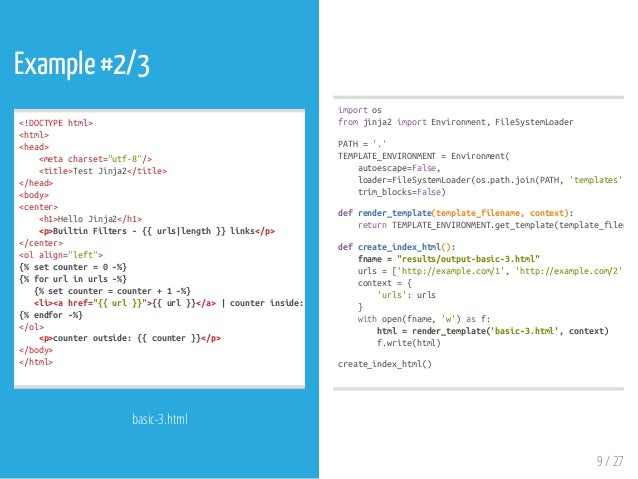Python Template Engine
Jinja2 is one of the most used template engines for Python. It is inspired by Django's templating system but extends it with an expressive language that gives template authors a more powerful set of tools. On top of that it adds sandboxed execution and optional automatic escaping for applications where security is important. Jinja is a web template engine for the Python programming language and is licensed under a BSD License created by Armin Ronacher.It is similar to the Django template engine but provides Python-like expressions while ensuring that the templates are evaluated in a sandbox.It is a text-based template language and thus can be used to generate any markup as well as sourcecode.
Velocity (comparisons.velocity) For a basic introduction to Velocity, visit. Velocity is a Java template engine. It’s older than Cheetah, has a larger user base, and has better examples and docs at the moment. Cheetah, however, has a number of advantages over Velocity:.
Html Templating Engine

Python Website Templates
Cheetah is written in Python. Thus, it’s easier to use and extend. Cheetah’s syntax is closer to Python’s syntax than Velocity’s is to Java’s. Cheetah has a powerful caching mechanism. Velocity has no equivalent.
It’s far easier to add data/objects into the namespace where $placeholder values are extracted from in Cheetah. Velocity calls this namespace a ‘context’. Contexts are dictionaries/hashtables. You can put anything you want into a context, BUT you have to use the.put method to populate the context; e.g.